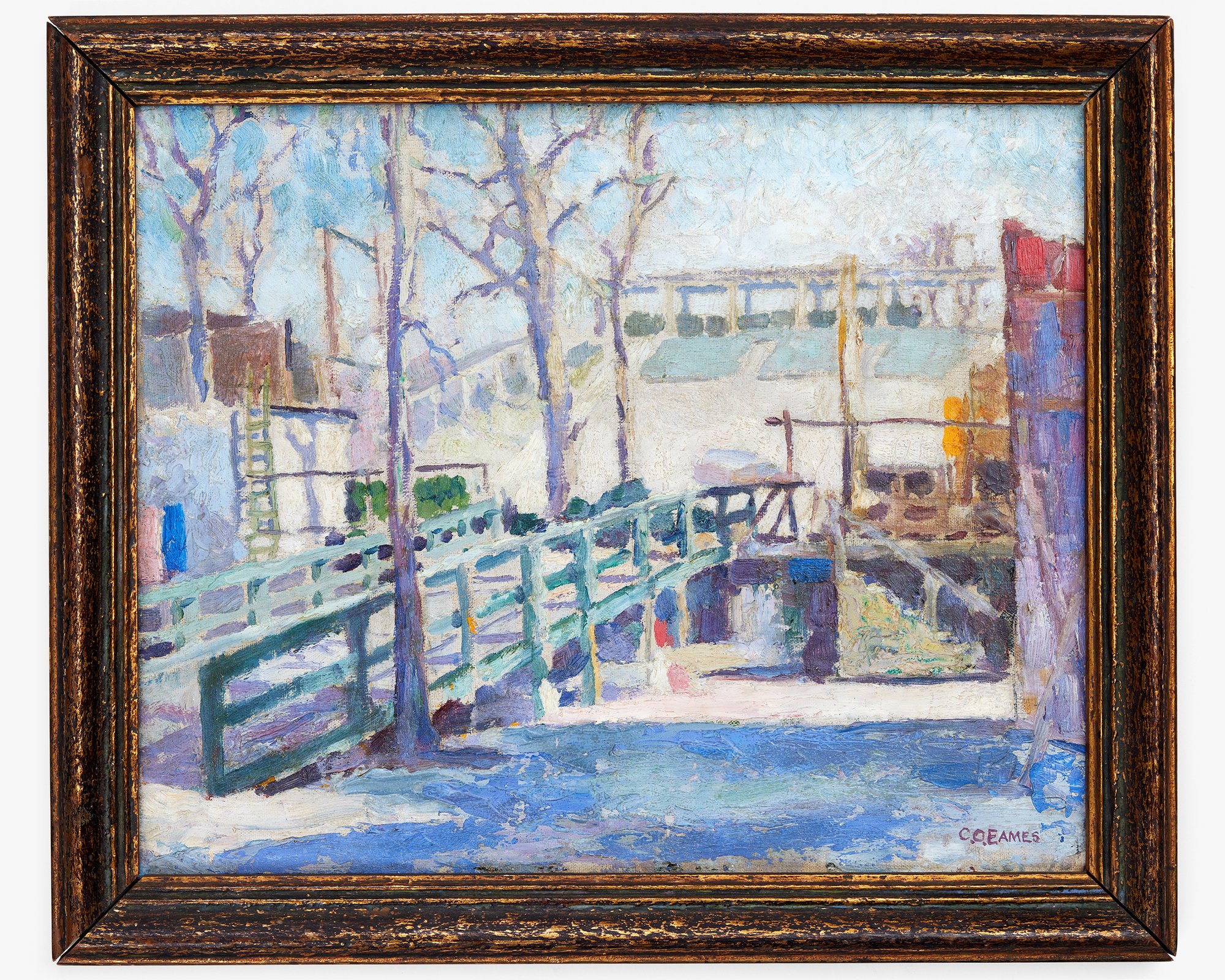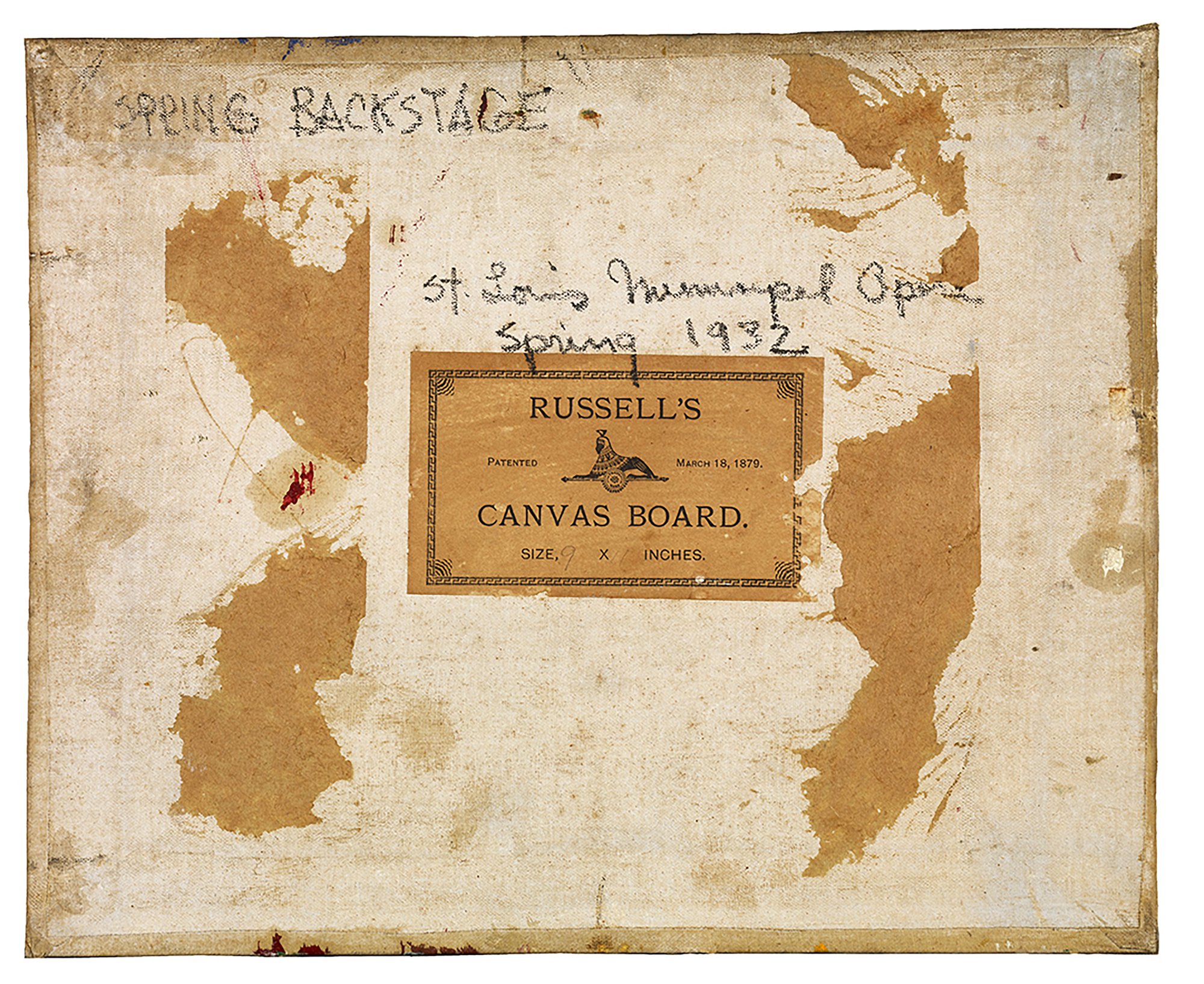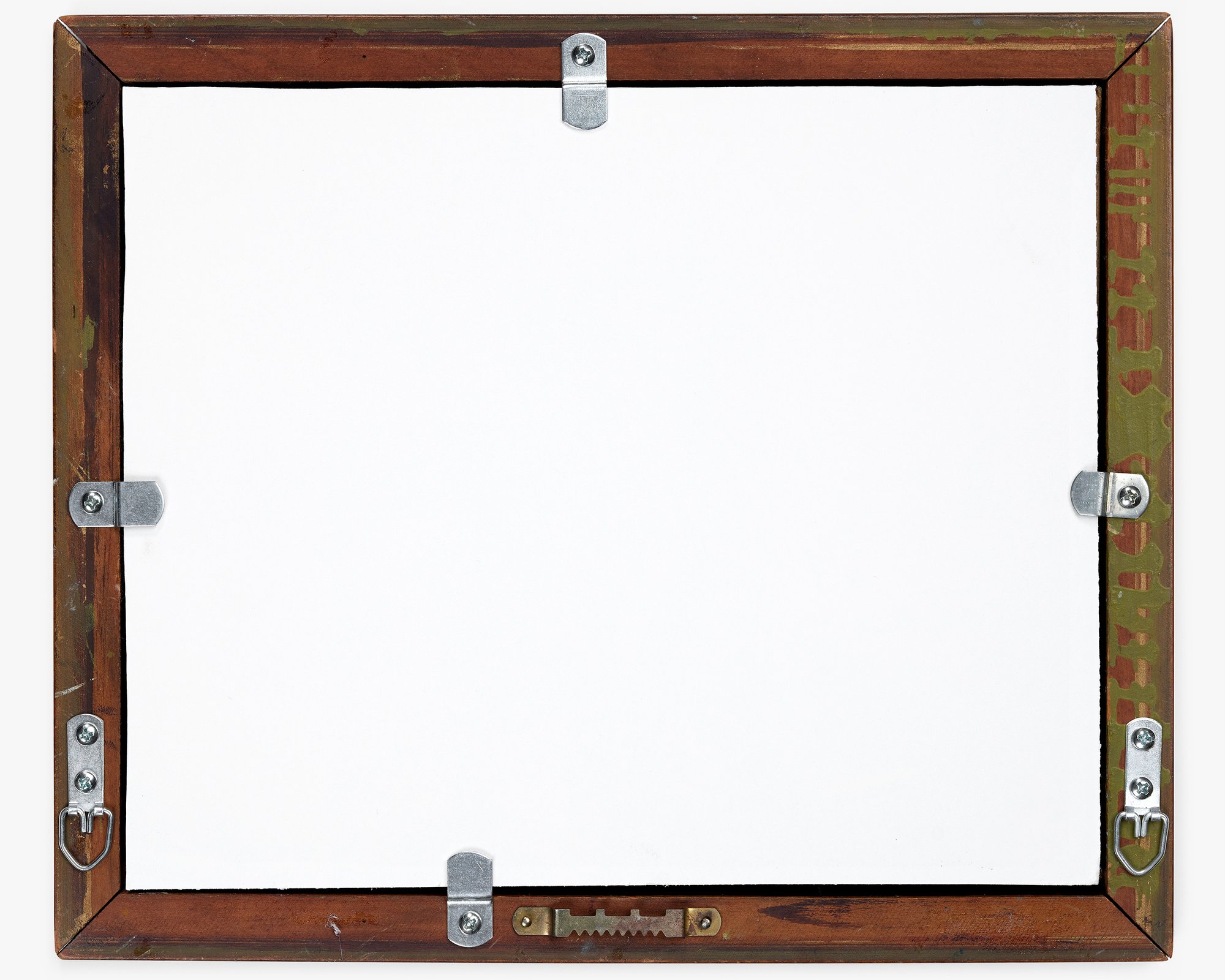Spring Backstage (St. Louis Municipal Opera)
Charles Eames
1932
Charles had a lifelong fascination with unselfconscious design, such as the structures that support buildings and bridges, and in this case, the behind-the-scenes construction of a stage set. In 1932 he designed sets for the St. Louis Municipal Opera outdoor theater. Although he designed this set, he was more interested in painting the back of the stage than the front. Ten years after this painting, Charles would go on to work as a set designer for MGM (Metro-Goldwyn-Mayer).
Obverse: Signed “C. O. Eames” in lower right. Reverse: “SPRING BACKSTAGE, St. Louis Municipal Opera, Spring 1932” handwritten above an attached label with a decorative border and “RUSSELL’S PATENTED [Image of Sphinx] MARCH 18, 1879. CANVAS BOARD. SIZE, 9 X 11 INCHES” printed in black ink.
- Medium:Oil on canvas board
- Dimensions:9 x 11 in. (22.9 x 27.9 cm)
- Item:2019.2.192
— Rachael Blackburn Cozad


